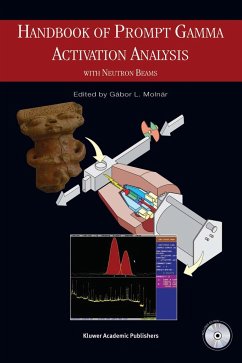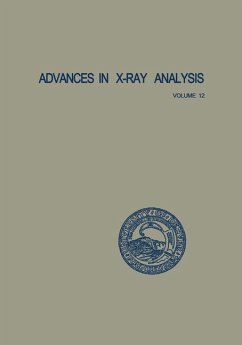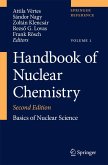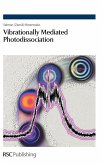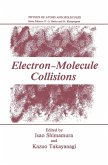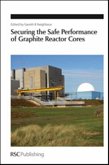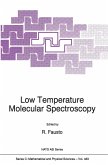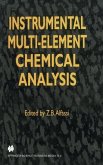Prompt gamma activation analysis (PGAA) is a unique, non-destructive nuclear analytical method with multi-element capabilities. It is most effective if intense neutron beams (especially cold beams) of nuclear reactors are used to induce the prompt gamma radiation. Based largely on the authors' pioneering research in cold neutron PGAA, the handbook describes the methodology in self-contained manner and reviews recent applications. The library of prompt gamma ray data and spectra for all natural elements is a unique aid to the practitioner. The level is understandable by a broad audience, which facilitates teaching and training.
The Handbook of Prompt Gamma Activation Analysis is a comprehensive handbook written for those practising the method, wanting to implement it at a reactor facility, or just looking for a powerful non-destructive method of element analysis. The book is also useful for nuclear physics, chemistry and engineering scientists, scholars and graduate students interested in neutron-induced gamma ray spectroscopy and nuclear analytical methods.
Hinweis: Dieser Artikel kann nur an eine deutsche Lieferadresse ausgeliefert werden.
The Handbook of Prompt Gamma Activation Analysis is a comprehensive handbook written for those practising the method, wanting to implement it at a reactor facility, or just looking for a powerful non-destructive method of element analysis. The book is also useful for nuclear physics, chemistry and engineering scientists, scholars and graduate students interested in neutron-induced gamma ray spectroscopy and nuclear analytical methods.
Hinweis: Dieser Artikel kann nur an eine deutsche Lieferadresse ausgeliefert werden.
From the reviews:
"This new handbook is the second one published on PGAA. ... has some very good attributes and should be useful to anyone in the field or thinking about using the numerous applications of PGAA. ... The appendix of reference data ... is also very informative, useful, and well-presented. The reading of the individual chapters flows very well, the figures are well illustrated, and the references are both historical in nature and very much up-to-date. This is an excellent addition to the PGAA community ... ." (Sheldon Landsberger, Journal of the American Chemical Society, Vol. 127(39), 2005)
"This new handbook is the second one published on PGAA. ... has some very good attributes and should be useful to anyone in the field or thinking about using the numerous applications of PGAA. ... The appendix of reference data ... is also very informative, useful, and well-presented. The reading of the individual chapters flows very well, the figures are well illustrated, and the references are both historical in nature and very much up-to-date. This is an excellent addition to the PGAA community ... ." (Sheldon Landsberger, Journal of the American Chemical Society, Vol. 127(39), 2005)

